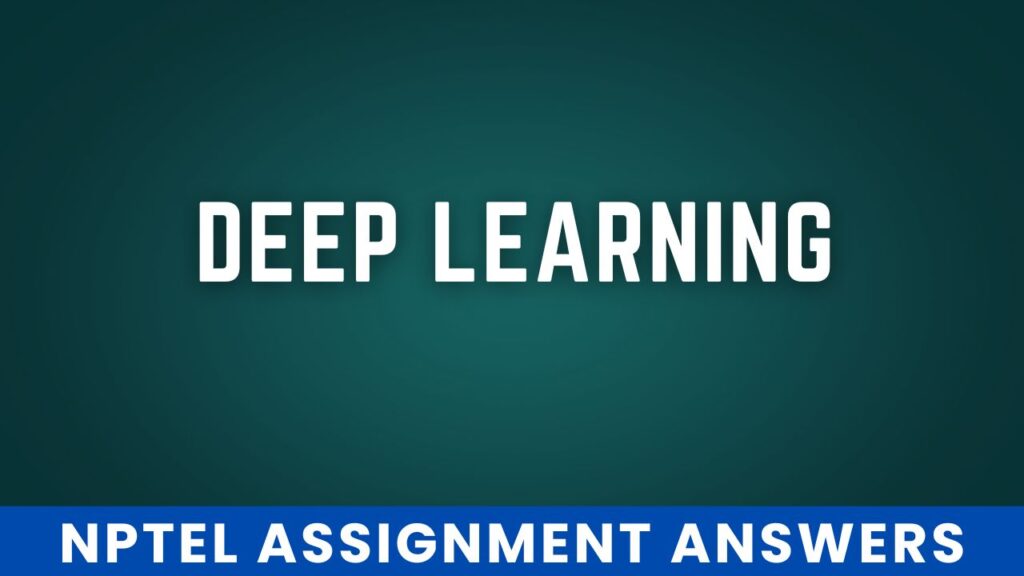NPTEL Deep Learning – IIT Ropar Week 10 Assignment Answers 2025
1. Consider an input image of size 1000 × 1000 × 7 where 7 refers to the number of channels (Such images do exist!). Suppose we want to apply a convolution operation on the entire image by sliding a kernel of size 1×1×d. What should be the depth d of the kernel?
Answer :- For Answers Click Here
2. For the same input image in Q1, suppose that we apply the following kernels of differing sizes.
K1 :5×5
K2 :7×7
K3 :25×25
K4 :41×41
K5 :51×51
Assume that stride s=1 and no zero padding. Among all these kernels which one shrinks the output dimensions the most?
- K1
- K2
- K3
- K4
- K5
Answer :-
3. Which of the following is a technique used to fool CNNs in Deep Learning?
- Transfer learning
- Dropout
- Batch normalization
- Adversarial examples
Answer :-
4. What is the motivation behind using multiple filters in one Convolution layer?
- Reduced complexity of the network
- Reduced size of the convolved image
- Insufficient information
- Each filter captures some feature of the image separately
Answer :-
5. Which of the following statements about CNN is (are) true?
- CNN is a feed-forward network
- Weight sharing helps CNN layers to reduce the number of parameters
- CNN is suitable only for natural images
- The shape of the input to the CNN network should be square
Answer :-
6. Consider an input image of size 100 × 100 × 1. Suppose that we used kernel of size 3×3, zero padding P=1 and stride value S=3. What will be the output dimension?
- 100 × 100 × 1
- 3 × 3 × 1
- 34 × 34 × 1
- 97 × 97 × 1
Answer :- For Answers Click Here
7. Consider an input image of size 100 × 100 × 3. Suppose that we use 8 kernels (filters) each of size 1 × 1, zero padding P=1 and stride value S = 2. How many parameters are there? (assume no bias terms)
- 3
- 24
- 10
- 8
- 100
Answer :-
8. What is the purpose of guided backpropagation in CNNs?
- To train the CNN to improve its accuracy on a given task.
- To reduce the size of the input images in order to speed up computation.
- To visualize which pixels in an image are most important for a particular class prediction.
- None of the above.
Answer :-
9. Which of the following statements is true regarding the occlusion experiment in a CNN?
- It is a technique used to prevent overfitting in deep learning models.
- It is used to increase the number of filters in a convolutional layer.
- It is used to determine the importance of each feature map in the output of the network.
- It involves masking a portion of the input image with a patch of zeroes.
Answer :-
10. Which of the following architectures has the highest no of layers?
- AlexNet
- GoogleNet
- ResNet
- VGG
Answer :- For Answers Click Here


